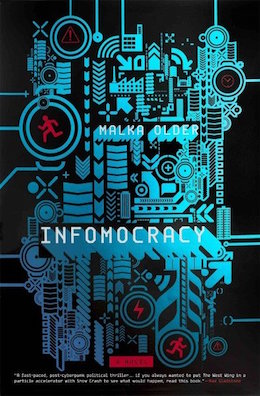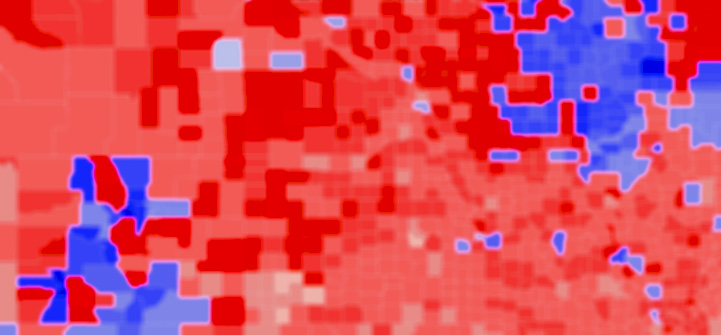I have lived in, worked in, and visited a lot of countries with on-going separatist movements. (That includes the United States and, in fact, almost any country you might be reading this from). Some are more noticeable than others. When I lived in Sri Lanka, the LTTE had carved out a band of territory off-limits to the Sri Lankan government, complete with its own (limited) public services, radio stations, and time zone (this territory was later violently overrun and no longer exists). When I traveled in Spain, Spaniards were boycotting cava because of Catalonian secession movements, and there were warnings about attacks by ETA, the armed Basque separatist organization. When I worked in Timor-Leste, one of the newest countries in the world was still figuring out things like economy and orthography after centuries of colonialism. A few hundred kilometers to the north, in Maluku, people were still deciding whether the new autonomy offered by the Indonesian government was worth giving up their dreams of independence.
These urges for breaking up countries into smaller and smaller administrative units reflect one of the fundamental problems with democracy: oppression of the minority by the majority. Democracy is, after all, a system by which a group with greater numbers can impose its will on all other groups in the country. Different countries have tried to address this in different ways: mandatory representation in parliament (e.g., a number of seats that are only open to a certain minority group); an independent judiciary to (in theory) assure basic human rights to all; federalism. These solutions may work to a certain extent, but the whole idea of self-determination being so fundamental to democracy means that people are going to continue to look for ways to have their preferences met.
To put it another way, take the current, contested, complicated, U.S. presidential elections (I’m confident this example will continue to work if you’re reading this four years from now, or eight, or even just looking at the midterms). No matter who wins the election, a county-by-county breakdown of votes will show a patchwork: some wide swaths of blue or red, but many places where tiny blocks of colors are mixed together side by side. Polarized democracy means that only slightly more than half the people get what they want at the national level, although people have more influence over their local elections.
As that last point suggests, this can be looked at as a problem of scale: as gerrymandering shows us, depending on where you draw the lines, demographics shift. This is what separatist movements, so common that scarcely a country in the world is without one, try to do: draw new lines so that their group – which may be ideological, ethno-national, or formed of any other common interest – is the majority, even if it’s in a brand new country.
So I came up with an idea: every geographic unit of 100,000 people (roughly) gets to chose the government it wants out of any of the options, anywhere in the world. Because population would be the operative number, not geographic size, immigration becomes a positive; at the same time, fewer people need to immigrate, because they can vote for what they want without moving to a place where it’s available. Micro-democracy, as I called it, lets more people get closer to their preferred system, and encourages innovation and competition as a wider range of governments compete for votes.
It’s not such a stretch. There are already many examples of countries with non-contiguous territories: Alaska, for example. Gibraltar. Réunion. That part would be easy enough to manage. The tricky thing, the part that makes this science fiction rather than a policy proposal, is getting countries to give up their historically determined territory, and let people vote on where they want to belong.
We live in a world when most economies no longer depend on geographic size; if people don’t want to be a part of your country, doesn’t it make more sense just to let them go and self-determine? Isn’t that what democracy is supposed to be about? Yes, I understand that everyone is scared of admitting borders aren’t forever, even inconvenient and senseless colonial borders, but wouldn’t it be nicer if they were fluid? Look at the patchwork of county results in any U.S. presidential election. Wouldn’t it be nicer if we could pick the kind of government we want—all along the spectrum of social safety nets and taxes and regulations and cultural preferences—wherever we live?
The other major issue with democracy that I was ruminating on was the problem of an informed electorate. Fear of uninformed (or uninformable, in the racist, classist and sexist paradigm of the time) voters was how we ended up with representative democracy. Today, the problem is not so much quantity of information, but quality. It is shockingly easy to find out anything you want to know, although it remains easier for some (in broadband areas, able to afford smartphones, within walking distance of a library) than others. But even for those with access, a surfeit of information is almost as debilitating for decision-making as a lack. Just as we have the food production capacity to feed the world, but fail to do so because of poor organization and lack of political will, we have the information, but we are not managing it in ways that get us what we need.
We have fact-checking, we have statistics, we have data journalism, and yet it is still all but impossible to have a meaningful discussion with someone on the other side of the political divide, not (just) because of any lack of civility or philosophical common ground, but because we can’t agree on basic information that should be easy to confirm. Without a single mandated organization, any “proof” that can be offered is easily countered by “data” from another source.
 It was the extreme frustration with this pattern during the 2012 U.S. presidential election that led me to imagine an all-encompassing bureaucracy, part Google and part United Nations, that not only collects data, but makes sure it’s (literally) in everyone’s face through augmented reality. This organization would annotate candidate statements, offer statistics and interpretations, puncture lies and half-truths. It reflects our current obsession with measuring, recording, and scrabbling for an elusive truth.
It was the extreme frustration with this pattern during the 2012 U.S. presidential election that led me to imagine an all-encompassing bureaucracy, part Google and part United Nations, that not only collects data, but makes sure it’s (literally) in everyone’s face through augmented reality. This organization would annotate candidate statements, offer statistics and interpretations, puncture lies and half-truths. It reflects our current obsession with measuring, recording, and scrabbling for an elusive truth.
Of course, these are not perfect solutions. There are always going to be minority opinions in any group, no matter how granular micro-democracy gets. A monolithic purveyor of information begs problems of the who-watches-the-watchmen category, not to mention privacy concerns (on the plus side, it does away with 24-hour cable news and #WellActually). But these flaws only made the idea more interesting to me. They eventually cohered into my novel Infomocracy, a boots-on-the-ground exploration of this idea through science fiction.
Soon, I was weaving a drama into my thought experiment, a high-paced thriller that involved election workers, anarchists, and representatives of Information, the global bureaucracy controlling data. Infomocracy plays out the dangers of assumed neutrality, technological dependence, and data manipulation while also exploring the flaws and pitfalls of the micro-democracy system.
Imagining how this hypothetical system might work also gives us a different vantage point from which to examine how our current democracy fails and succeeds. Writing about a world in which people can choose any government they want highlights the limitations of a two-party system. The idea of a single, incontrovertibly authoritative news source, problematic as it is, offers a critique of current media.
The point of exploring the concept of infomocracy and micro-democracy is not to prove that either of these innovations is necessarily the way for us to go; although they might give us some ideas for tweaks we could make or new directions to try. The point is that to keep trying to make our democratic systems better; to keep adjusting to new technologies and new needs and new realizations of how we have failed in the past. Ultimately, to keep moving towards more inclusiveness, representation, and education for a more perfect government.
Malka Older is a writer, humanitarian worker, and Ph.D. candidate at the Centre de Sociologie des Organisations studying governance and disasters. Named Senior Fellow for Technology and Risk at the Carnegie Council for Ethics in International Affairs for 2015, she has more than eight years of experience in humanitarian aid and development, and has responded to complex emergencies and natural disasters in Uganda, Darfur, Indonesia, Japan, and Mali. Infomocracy is her first novel.










